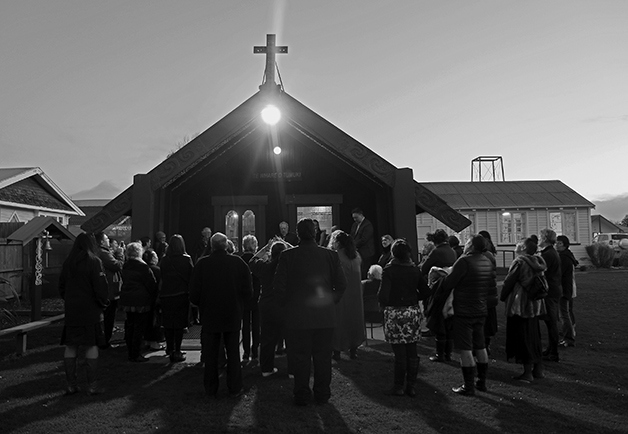\r\n \t
{{filter}}<\/div>\r\n \t<\/div>\r\n\t<\/div>\r\n<\/div>","grid":{"boxesToLoadStart":20,"boxesToLoad":20,"minBoxesPerFilter":20,"lazyLoad":false,"lazyLoadInLoadMoreView":false,"horizontalSpaceBetweenBoxes":15,"verticalSpaceBetweenBoxes":15,"columns":3,"resolutions":[{"columnWidth":"auto","maxWidth":1440,"columns":3},{"columnWidth":"auto","maxWidth":1280,"columns":3},{"columnWidth":"auto","maxWidth":1024,"columns":3},{"columnWidth":"auto","maxWidth":966,"columns":3},{"columnWidth":"auto","maxWidth":768,"columns":2},{"columnWidth":"auto","maxWidth":640,"columns":2},{"columnWidth":"auto","maxWidth":480,"columns":1}],"waitForAllThumbsNoMatterWhat":false,"thumbnailOverlay":true,"overlayEffect":"fade","overlaySpeed":200,"overlayEasing":"default","showOnlyVisibleBoxesInPopup":false,"considerFilteringInPopup":true,"deepLinkingOnPopup":true,"deepLinkingOnFilter":false,"deepLinkingOnSearch":false,"LoadingWord":"Loading...","loadMoreWord":"Load More","noMoreEntriesWord":"No More Entries","popup":"fancybox","magnificpopup":{"gallery":true,"alignTop":false,"preload":[0,3]},"fancybox":{"loop":false,"margin":[44,0],"keyboard":true,"arrows":true,"infobar":false,"toolbar":true,"buttons":["slideShow","fullScreen","thumbs","close"],"idleTime":3,"protect":false,"animationEffect":"zoom","animationDuration":330,"transitionEffect":"fade","transitionDuration":330,"slideShow":{"autoStart":false,"speed":4000},"fullScreen":{"autoStart":false},"thumbs":{"autoStart":false,"hideOnClose":true},"touch":{"vertical":true,"momentum":true}}}}" auto-grid-data="[{"directory":"\/var\/www\/html\/wp-content\/plugins\/wp_auto_grid\/galleries\/gallery\/Te Karaka\/75","directory_date":1677540377,"filter":"","extra_filter":"","thumb_src":"\/wp-content\/plugins\/wp_auto_grid\/galleries\/gallery\/Te Karaka\/75\/TK-75-TeAo-04.jpg","name":"TK-75-TeAo-04","date":1677540377,"random":5969,"popup_src":"\/wp-content\/plugins\/wp_auto_grid\/galleries\/gallery\/Te Karaka\/75\/TK-75-TeAo-04.jpg"},{"directory":"\/var\/www\/html\/wp-content\/plugins\/wp_auto_grid\/galleries\/gallery\/Te Karaka\/75","directory_date":1677540377,"filter":"","extra_filter":"","thumb_src":"\/wp-content\/plugins\/wp_auto_grid\/galleries\/gallery\/Te Karaka\/75\/TK-75-TeAo-08.jpg","name":"TK-75-TeAo-08","date":1677540377,"random":4998,"popup_src":"\/wp-content\/plugins\/wp_auto_grid\/galleries\/gallery\/Te Karaka\/75\/TK-75-TeAo-08.jpg"},{"directory":"\/var\/www\/html\/wp-content\/plugins\/wp_auto_grid\/galleries\/gallery\/Te Karaka\/75","directory_date":1677540377,"filter":"","extra_filter":"","thumb_src":"\/wp-content\/plugins\/wp_auto_grid\/galleries\/gallery\/Te Karaka\/75\/TK-75-TeAo-07.jpg","name":"TK-75-TeAo-07","date":1677540377,"random":5358,"popup_src":"\/wp-content\/plugins\/wp_auto_grid\/galleries\/gallery\/Te Karaka\/75\/TK-75-TeAo-07.jpg"},{"directory":"\/var\/www\/html\/wp-content\/plugins\/wp_auto_grid\/galleries\/gallery\/Te Karaka\/75","directory_date":1677540377,"filter":"","extra_filter":"","thumb_src":"\/wp-content\/plugins\/wp_auto_grid\/galleries\/gallery\/Te Karaka\/75\/TK-75-TeAo-10.jpg","name":"TK-75-TeAo-10","date":1677540377,"random":7645,"popup_src":"\/wp-content\/plugins\/wp_auto_grid\/galleries\/gallery\/Te Karaka\/75\/TK-75-TeAo-10.jpg"},{"directory":"\/var\/www\/html\/wp-content\/plugins\/wp_auto_grid\/galleries\/gallery\/Te Karaka\/75","directory_date":1677540377,"filter":"","extra_filter":"","thumb_src":"\/wp-content\/plugins\/wp_auto_grid\/galleries\/gallery\/Te Karaka\/75\/TK-75-TeAo-09.jpg","name":"TK-75-TeAo-09","date":1677540377,"random":3040,"popup_src":"\/wp-content\/plugins\/wp_auto_grid\/galleries\/gallery\/Te Karaka\/75\/TK-75-TeAo-09.jpg"},{"directory":"\/var\/www\/html\/wp-content\/plugins\/wp_auto_grid\/galleries\/gallery\/Te Karaka\/75","directory_date":1677540377,"filter":"","extra_filter":"","thumb_src":"\/wp-content\/plugins\/wp_auto_grid\/galleries\/gallery\/Te Karaka\/75\/TK-75-TeAo-12.jpg","name":"TK-75-TeAo-12","date":1677540377,"random":8467,"popup_src":"\/wp-content\/plugins\/wp_auto_grid\/galleries\/gallery\/Te Karaka\/75\/TK-75-TeAo-12.jpg"},{"directory":"\/var\/www\/html\/wp-content\/plugins\/wp_auto_grid\/galleries\/gallery\/Te Karaka\/75","directory_date":1677540377,"filter":"","extra_filter":"","thumb_src":"\/wp-content\/plugins\/wp_auto_grid\/galleries\/gallery\/Te Karaka\/75\/TK-75-TeAo-02.jpg","name":"TK-75-TeAo-02","date":1677540377,"random":3438,"popup_src":"\/wp-content\/plugins\/wp_auto_grid\/galleries\/gallery\/Te Karaka\/75\/TK-75-TeAo-02.jpg"},{"directory":"\/var\/www\/html\/wp-content\/plugins\/wp_auto_grid\/galleries\/gallery\/Te Karaka\/75","directory_date":1677540377,"filter":"","extra_filter":"","thumb_src":"\/wp-content\/plugins\/wp_auto_grid\/galleries\/gallery\/Te Karaka\/75\/TK-75-TeAo-05.jpg","name":"TK-75-TeAo-05","date":1677540377,"random":561,"popup_src":"\/wp-content\/plugins\/wp_auto_grid\/galleries\/gallery\/Te Karaka\/75\/TK-75-TeAo-05.jpg"},{"directory":"\/var\/www\/html\/wp-content\/plugins\/wp_auto_grid\/galleries\/gallery\/Te Karaka\/75","directory_date":1677540377,"filter":"","extra_filter":"","thumb_src":"\/wp-content\/plugins\/wp_auto_grid\/galleries\/gallery\/Te Karaka\/75\/TK-75-TeAo-13.jpg","name":"TK-75-TeAo-13","date":1677540377,"random":6297,"popup_src":"\/wp-content\/plugins\/wp_auto_grid\/galleries\/gallery\/Te Karaka\/75\/TK-75-TeAo-13.jpg"},{"directory":"\/var\/www\/html\/wp-content\/plugins\/wp_auto_grid\/galleries\/gallery\/Te Karaka\/75","directory_date":1677540377,"filter":"","extra_filter":"","thumb_src":"\/wp-content\/plugins\/wp_auto_grid\/galleries\/gallery\/Te Karaka\/75\/TK-75-TeAo-03.jpg","name":"TK-75-TeAo-03","date":1677540377,"random":3386,"popup_src":"\/wp-content\/plugins\/wp_auto_grid\/galleries\/gallery\/Te Karaka\/75\/TK-75-TeAo-03.jpg"},{"directory":"\/var\/www\/html\/wp-content\/plugins\/wp_auto_grid\/galleries\/gallery\/Te Karaka\/75","directory_date":1677540377,"filter":"","extra_filter":"","thumb_src":"\/wp-content\/plugins\/wp_auto_grid\/galleries\/gallery\/Te Karaka\/75\/TK-75-TeAo-11.jpg","name":"TK-75-TeAo-11","date":1677540377,"random":5160,"popup_src":"\/wp-content\/plugins\/wp_auto_grid\/galleries\/gallery\/Te Karaka\/75\/TK-75-TeAo-11.jpg"},{"directory":"\/var\/www\/html\/wp-content\/plugins\/wp_auto_grid\/galleries\/gallery\/Te Karaka\/75","directory_date":1677540377,"filter":"","extra_filter":"","thumb_src":"\/wp-content\/plugins\/wp_auto_grid\/galleries\/gallery\/Te Karaka\/75\/TK-75-TeAo-15.jpg","name":"TK-75-TeAo-15","date":1677540377,"random":3921,"popup_src":"\/wp-content\/plugins\/wp_auto_grid\/galleries\/gallery\/Te Karaka\/75\/TK-75-TeAo-15.jpg"},{"directory":"\/var\/www\/html\/wp-content\/plugins\/wp_auto_grid\/galleries\/gallery\/Te Karaka\/75","directory_date":1677540377,"filter":"","extra_filter":"","thumb_src":"\/wp-content\/plugins\/wp_auto_grid\/galleries\/gallery\/Te Karaka\/75\/TK-75-TeAo-06.jpg","name":"TK-75-TeAo-06","date":1677540377,"random":6903,"popup_src":"\/wp-content\/plugins\/wp_auto_grid\/galleries\/gallery\/Te Karaka\/75\/TK-75-TeAo-06.jpg"},{"directory":"\/var\/www\/html\/wp-content\/plugins\/wp_auto_grid\/galleries\/gallery\/Te Karaka\/75","directory_date":1677540377,"filter":"","extra_filter":"","thumb_src":"\/wp-content\/plugins\/wp_auto_grid\/galleries\/gallery\/Te Karaka\/75\/TK-75-TeAo-14.jpg","name":"TK-75-TeAo-14","date":1677540377,"random":3275,"popup_src":"\/wp-content\/plugins\/wp_auto_grid\/galleries\/gallery\/Te Karaka\/75\/TK-75-TeAo-14.jpg"}]">
“It was real marae styles and ‘Mum’ was a huge part of that. She looked after us all, she was very much our Mum and we were a sisterhood – we still are today.”
Aunty Doe says she just wanted to help when she took on the job of Matron in 1978. She was living in Rotorua with husband Pura and her two eldest daughters, Ripeka and Rangimarie, were boarding at the college.
“I used to go down to college and sort out my children,” she says smiling. “I could see the school was having a few problems and I just wanted to help.”
The whole family relocated to Christchurch and lived at the college for the next 11 years. Their youngest girl, Puamiria, also attended the college and the boys Taiawhio and Manawanui attended boarding school in the north.
“It was our home. Pura, or ‘Dad’ as they called him, was also very involved in the school. He was the good cop and I was the bad cop,” says Aunty Doe laughing, having just recounted stories of her doing the night patrol carrying a hockey stick to deal with the hostel boys that were frequent uninvited visitors.
More than 150 whānau, friends and 35 Te Wai girls gathered at Te Pā o Rākihautū to honour and celebrate 80 years of life, love and service to whānau and community.
“When the girls started to sing those memories just all came back,” sighs Aunty Doe. “I love their singing.”

